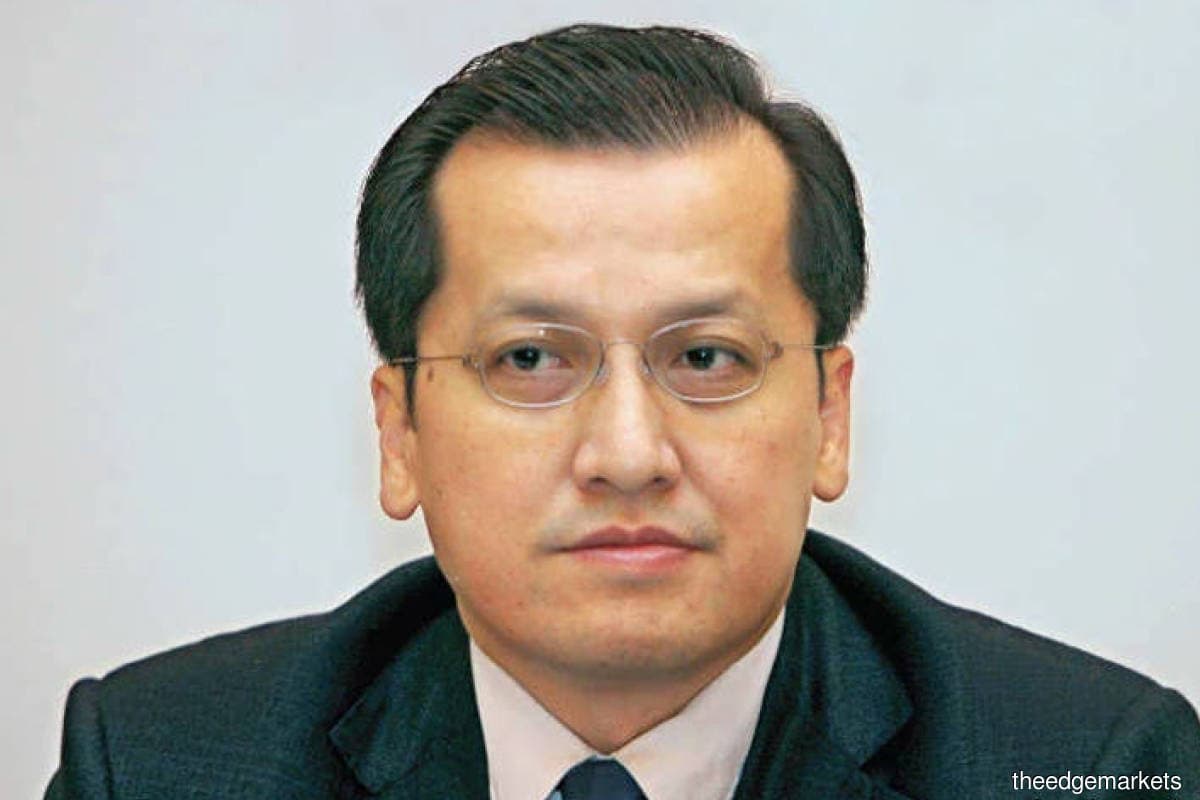
This article first appeared in The Edge Malaysia Weekly on August 31, 2020 - September 6, 2020
TRANSMILE Group Bhd founder and former CEO Gan Boon Aun may have been convicted last Thursday, but that may not be the end of his 10-year-long court case. Following the judge’s guilty verdict, the Securities Commission Malaysia (SC) said it would be recommending to the public prosecutor to appeal for a heavier sentence against Gan.
The decision rests with the Attorney-General’s Chambers.
On Thursday, Sessions Court judge Tuan Hasbullah Adam fined Gan RM2.5 million (in default 18 months’ imprisonment) and sentenced him to one day’s jail.
In the SC’s statement on the same day, it said it would be recommending to the public prosecutor to appeal against the sentence.
During mitigation, Deputy Public Prosecutor Mohd Hafiz Mohd Yusof had urged the court to order 18 to 24 months’ imprisonment and a fine of RM2 million.
“We are not asking for the maximum punishment, but a custodial sentence is warranted. We pray that the court impose a custodial sentence of between 18 and 24 months and a fine of RM2 million,” he said.
Hafiz said the sentence should act as a deterrent and that it should be based on the sentencing trend in similar cases prior to this.
“We requested for a deterrent sentence, and based on the sentencing trend in similar offences (in previous cases), we say that a range of between 18 and 24 months (imprisonment) is appropriate, given the facts of the case,” he told The Edge at the end of the proceedings last Thursday.
“We’re happy that at least the trial has finished, and we will see how it goes from there,” he added.
Gan was found guilty by the Sessions Court of furnishing misleading financial statements to Bursa Malaysia in 2007. In delivering his judgment, Hasbullah said the defence had failed to prove that the offence committed by the group — furnishing misleading statements to Bursa with intent to deceive — was not a result of Gan’s consent as a director.
Hasbullah further ruled that the defence had also failed to prove that the accused had exercised all such diligence to prevent the commission of the offence.
Transmile, listed on June 27, 1997, was a darling of the stock market. It had six wholly-owned subsidiaries, including Transmile Air Services Sdn Bhd (TAS), which was the biggest revenue contributor to the group, and Transmile Management Sdn Bhd.
Transmile’s principal activities through its subsidiary companies included provision of air transport services, trading and leasing of aircraft and supplying of aircraft spare parts and accessories.
Transmile had submitted an announcement to Bursa in respect of its unaudited results that showed RM989.19 million as revenue for the financial year ended Dec 31, 2006, and RM338.47 million as revenue for the fourth quarter of that year.
This was deemed a misleading statement as TAS’ revenue of RM333.36 million, which was included in the said revenue figure, was false. TAS’ revenue had been inflated by including fictitious sales transactions between TAS and 20 purported customers.
The overstated revenue was likely to have induced market investors to purchase Transmile shares, as the company had reported stellar performance for that year. In actual fact, Transmile suffered losses of RM126.3 million instead of making a profit of RM157.5 million in 2006, and it chalked up losses totalling RM369.6 million instead of the RM84.4 million profit reported in 2005.
On Feb 8, 2007, Transmile’s external auditors, at the time known as Deloitte & Touche (Deloitte), queried the chief financial officer (CFO) about certain transactions involving the 20 purported customers. According to Deloitte, these transactions not only lacked economic justification but also supporting documentation.
In fact, at an audit committee meeting on Feb 14, 2007, Gan had told Deloitte that he was aware of the transactions involving the 20 purported customers and undertook to provide the supporting documents and explanations to the transactions.
The next day, Gan attended Transmile’s 37th board of directors meeting, during which the unaudited fourth quarterly results were approved by the board. Despite his knowledge of the transactions involving the 20 purported customers, he did not raise the issue highlighted by Deloitte to the board.
Subsequently, it was proven in court that there were several meetings convened by the audit committee and the board, which were attended by Gan, but he failed to highlight the audit concerns raised by Deloitte.
After the results announcement on Feb 15, 2007, Gan was noted to have continued to conceal the full facts about the irregular transactions from the board until May 9, 2007, when the CFO admitted to the overstatement of the revenue. Gan resigned on Aug 1, 2007.
The prosecution managed to prove that there were in fact no sales transactions between TAS and the 20 purported customers amounting to RM333.36 million. In order to appear as if the 20 purported customers had paid TAS for flight charter services, Gan had authorised the payment of monies from TAS to some of the bogus customers.
They were in fact 20 dormant firms that had a paid-up capital of RM2 each. The monies were then immediately paid back to TAS and recorded as genuine payments for the flight charter services rendered by TAS (contra transactions).
Furthermore, Gan advanced at least RM35 million of his own money to TAS to make the said payments through a third-party company, Primatasi Sendirian Bhd, to create the impression of “genuine collections” with the auditors.
Upon receiving the funds and recording in TAS’ books as collections, TAS then transferred the funds back into Primatasi.
The accounting scandal was exposed in 2007 and the chartered air-freight service company was categorised as a Practice Note 17 company in 2010. It was eventually suspended and delisted from Bursa in 2011.
Save by subscribing to us for your print and/or digital copy.
P/S: The Edge is also available on Apple's AppStore and Androids' Google Play.